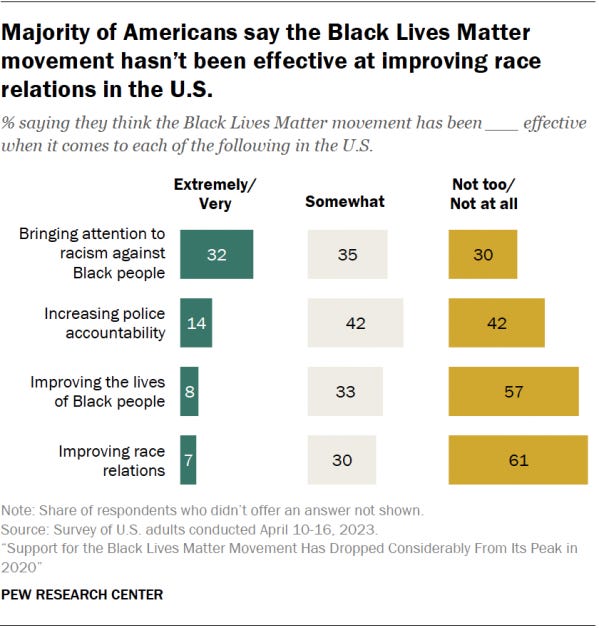Weekly Grounding #5
News, links, writing
Weekly Groundings are published on Fridays to highlight the most interesting news, links, and writing I found during the past week. I hope they help ground your thinking in the midst of media overload. Please subscribe if you’d like to receive these posts directly in your inbox.
Without further ado, here’s this week’s Weekly Grounding:
“In Scramble for EV Metals, Health Threat to Workers Often Goes Unaddressed”
This long-form reporting at The Washington Post traces the manganese poisoning epidemic among South African miners. Read it all to understand what the so-called “green” electric car industry leaves in its wake: “Makhanja, now 59, is mostly confined to his bed these days. Struggling to speak, he said it’s been a long time since he could walk without falling down. He sweats profusely at night. He shakes and forgets things. He said it was after his friends and co-workers — some of them in their 30s and 40s — started dying that he realized the answer to the question he’d asked at the clinic: ‘This is poison.’” Elon Musk and his ilk predictably don’t seem to care: “Analysts at four research and consulting firms that follow the EV and minerals sectors said that risk to manganese workers is rarely a topic of discussion among automakers, suppliers and investors.”
“When AI Overrules the Nurses Caring for You”
This piece at The Wall Street Journal documents the disturbing incursions of AI into hospitals, leading to the dehumanization of nurses and patients alike. Here’s testimony from one nurse, Melissa Beebe, at UC Davis Medical Center: “While Beebe can override the AI model if she gets doctor approval, she said she faces disciplinary action if she’s wrong. So she followed orders and drew blood from the patient, even though that could expose him to infection and run up his bill. ‘When an algorithm says, “Your patient looks septic,” I can’t know why. I just have to do it,’ said Beebe, who is a representative of the California Nurses Association union at the hospital. As she suspected, the algorithm was wrong. ‘I’m not demonizing technology,’ she said. ‘But I feel moral distress when I know the right thing to do and I can’t do it.’” In case this seems like an isolated incident, the article continues: “In a survey of 1,042 registered nurses published this month by National Nurses United, a union, 24% of respondents said they had been prompted by a clinical algorithm to make choices they believed ‘were not in the best interest of patients based on their clinical judgment and scope of practice’ about issues such as patient care and staffing. Of those, 17% said they were permitted to override the decision, while 31% weren’t allowed and 34% said they needed doctor or supervisor’s permission.”
“Support for the Black Lives Matter Movement Has Dropped Considerably From Its Peak in 2020”
This in-depth Pew Research Center survey on Americans’ shifting attitudes toward BLM is very important. Especially notable is the fact that only “About three-in-ten Americans (31%) say they understand the goals of the Black Lives Matter movement extremely or very well. Four-in-ten say they understand the goals somewhat well, while 27% say they don’t understand the goals too well or at all well.” A movement that cannot clearly articulate its political objectives to the people is bound to fail, so it’s no surprise to see the following survey results:
“Novak Djokovic: Always More than Tennis”
Binoy Kampmark at Counterpunch provides an important account of the various ways in which Novak Djokovic has troubled the tennis world: “Be it the issue of vaccinations (he refuses to take them); his political views about Kosovo (how dare he have them); the treatment of tennis players more broadly (how dare he speak for them), Novak has shown himself willing, to the point of being comically absurd, to stick his slender neck out. His passion remains scorching, his mental resilience awe inspiring.”
“The Unabomber, the CIA and LSD”
Also at Counterpunch, this 1999 piece was republished in the wake of Ted Kaczynski’s death on June 10th. It addresses Kaczynski’s participation in the CIA mind control experiments conducted at Harvard while he was an undergraduate: “As chairman of the Department of Social Relations at Harvard, Murray zealously pursued the CIA’s efforts to carry forward experiments in mind control conducted by Nazi doctors in the concentration camps. The overall program was under the control of the late Sidney Gottlieb, head of the CIA’s technical services division. Just as Harvard students were fed doses of LSD, psilocybin and other potions, so too were prisoners and many unwitting guinea pigs.” Keep an eye out for future writing related to this topic here at Handful of Earth.
This is a powerful meditation (and polemic) on the rise of “existential politics” in the West by
at . The proliferation of GPS technologies in London serves as a case study: “The incursion of Street View and GPS opened London up for easier inspection, making it more legible to outsiders. These include the Esperanto meritocrats who come from all corners of the globe to throng the city’s financial center in smartly tailored suits, and representatives of various trans-European administrative bodies who needed to visit the island, like a Roman proconsul, to keep it abreast of pronouncements by the European Parliament. The flood of GPS-guided cars trolling for fares, piloted by ill-paid drivers as lost in London as you or I, has increased congestion but also made London more cheaply available to tourists who come for a few days. What’s not to like, for the cockney East Ender who took four years out of his life to master his own city from the cobbles up, on two wheels, in all manner of weather? To complain about your own economic and political dispossession is to be a Luddite.”
Beautiful writing on Charlie Parker and Thelonious Monk by
at . I was especially moved by this passage: “Most people will never know what it means to be so visible that the only way to disappear is by digging deeper into the self. Sometimes that digging is like digging one’s own grave and settling in while alive, falling into it from time to time and knowing you can revive yourself. It makes sense these players would scream dig! to one another during jam sessions and rehearsals, as if to demand: go deeper, become invisible, come into me.”
What grounded your thinking this week? Feel free to share in the comments.



